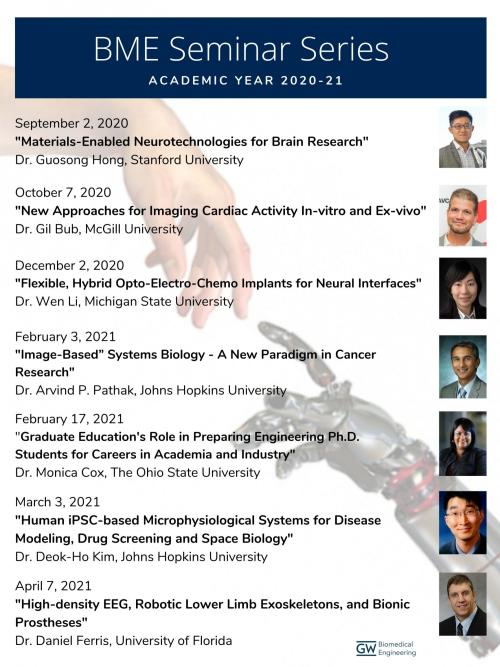Biomedical Engineering Annual Newsletter 2020
About BME
The Department of Biomedical Engineering, newly formed in 2014, offers unique opportunities for our students, who can take advantage of our location in the heart of the nation’s capital and near numerous federal agencies and research labs involved in biomedical and health-related enterprises.
What is Biomedical Engineering?
Biomedical engineering is the application of engineering practices to human health issues. Biomedical engineers have developed and improved the technologies used to diagnose and treat a wide range of diseases. Examples of new and exciting technologies under development by biomedical engineers are:
- Improved imaging methodologies for cancer detection
- Novel methods to analyze medical images and present additional information to physicians
- New technologies to understand electrical conduction abnormalities in the heart to better respond to heart attacks and arrhythmias
- New technologies to provide selective delivery of drugs, such as chemotherapy agents, to areas of interest in the body without damaging healthy tissues
Biomedical Engineering at GW
GW’s BME program takes advantage of the unique combination of resources and opportunities that the engineering school can provide to our BME students through its connection with GW’s School of Medicine and Health Sciences and GW Hospital, as well as the biotech industries and world-class laboratories in the Washington, DC metropolitan area. Potential focus areas include bioinformatics, telemedicine, instrumentation, pre-medicine, biomechanics, imaging, and other areas as directed by the student’s academic advisor.
Our undergraduates and graduate students conduct internships and research experiences at places like the NIH, NASA, and the FDA as well as private industry including Medtronic, Boston Scientific, and St. Jude Medical. This provides cutting-edge real-world experience that often leads to job offers at the places where students intern.
11
Faculty Members
189
Undergraduate Students
Undergraduate Programs
67
Graduate Students
Graduate Programs
Faculty
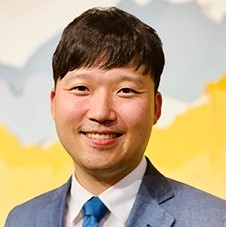
HyungSok “Nathan” Choe
View Full Profile
Assistant Professor of Practice
Ph.D., The University of Texas at Austin, 2019
Teaching
BME 4920W: Biomedical Engineering Capstone Project Lab II
BME 4925W: Biomedical Engineering Capstone Project Lab III
BME 1020: Introduction to Biomedical Engineering
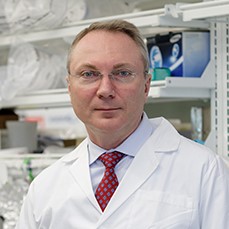
Igor Efimov
Alisann and Terry Collins Professor of Biomedical Engineering
Ph.D., Moscow Institute of Physics and Technology, 1992
Teaching
BME 2810: Biomedical Engineering Seminar I
BME 6045: Cardiovascular Engineering
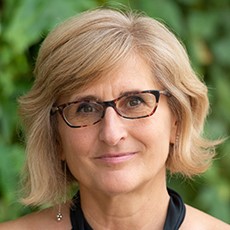
Emilia Entcheva
Professor
Ph.D., The University of Memphis, 1998
Teaching
BME 4480: Bioelectricity
BME 6488: Cell & Molecular Imaging

Matthew Kay
Professor
D.S.B.M.E., Washington University in St. Louis, 2000
Teaching
BME 3820: Principles and Practice of Biomedical Engineering
BME 6484: Biomedical Signal Analysis
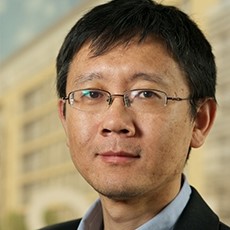
Zhenyu Li
Associate Professor
Ph.D., California Institute of Technology, 2007
Teaching
BME 6482: Medical Measurements
BME 6483: Medical Instrumentation Design
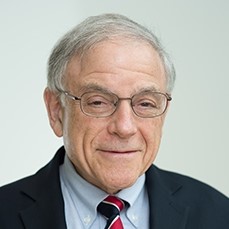
Murray Loew
Department Chair and Professor
Ph.D., Purdue University, 1972
Teaching
BME 6840: Digital Image Processing
BME 6850: Pattern Recognition
BME 6885: Computer Vision
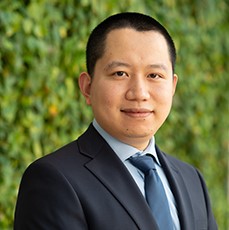
Luyao Lu
Assistant Professor
Ph.D., University of Chicago
Teaching
BME 6045: Micro & Nanofabrication Biology
BME 6045: Intro to Bioelectronics
BME 6065: BME Colloquium

Anne-Laure Papa
Assistant Professor
Ph.D., University of Bourgogne, 2009
Teaching
BME 6045: Biology of Materials and Regenerative Medicine
BME 6045: Nanotherapeutics and drug delivery
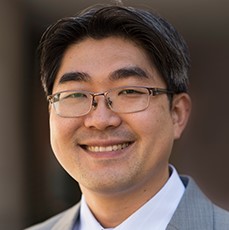
Chung Hyuk Park
Associate Professor
Ph.D., Georgia Institute of Technology, 2012
Teaching
BME6045.10: Socially Assistive Robotics and Interactive Learning
BME4835.10: Introduction to Assistive Robotics
BME6065: BME Colloquium
Assistive Robotics & Tele - Medicine (Art-Med) Lab
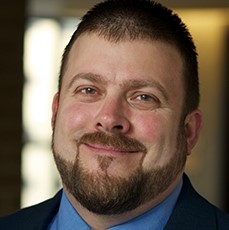
Jason M. Zara
Professor, Associate Chair for Academic Affairs
Ph.D., Duke University, 2001
Teaching
BME 1010: Introduction to Biomedical Engineering
BME 3910: Capstone Design Preparation
BME 3915W: Biomedical Engineering Capstone Project Lab I
BME 4830/6830: Introduction to Medical Imaging Methods
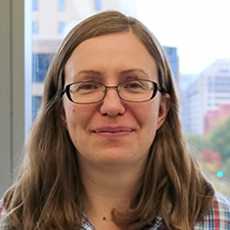
Vesna Zderic
Professor, Associate Chair for Research and Graduate Affairs
Ph.D., University of Washington, Seattle, WA, 2004
Teaching
BME 2815: Biomedical Engineering Seminar II
BME 4820/6820: Anatomy and Physiology for Engineers
BME 6486: Clinical Medicine for Engineers
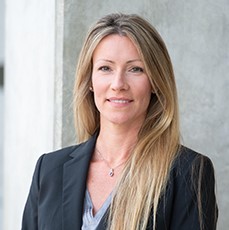
Research Faculty:
Kathryn Schunke
Assistant Research Professor in Biomedical Engineering
Ph.D., Rutgers University, 2010
- Charles Berul
- Milos Doroslovacki
- Inhee Chung
- Kevin Robert Cleary
- Matthew Todd Colonnese
- Michael Keidar
- Can E. Korman
- Michael W. Plesniak
- Megan C. Leftwich
- Zhao Li
- Marius George Linguraru
- Nikki Gillum Posnack
- Mark E. Reeves
- Kausik Sarkar
- Mona Zaghloul
- Lijie Grace Zhang
Raghuveer Rao
Adjunct Professor
Ph.D. in Engineering from the University of Connecticut
mrreee![]() gwu [dot] edu (mrreee[at]gwu[dot]edu)
gwu [dot] edu (mrreee[at]gwu[dot]edu)
Anastasia Wengrowski
Adjunct Professor
Ph.D., The George Washington University, 2015
Office Location: Remote
(Huntsville, Alabama)
awengrow![]() gwu [dot] edu (awengrow[at]gwu[dot]edu)
gwu [dot] edu (awengrow[at]gwu[dot]edu)
Cardiovascular Engineering Laboratory
The Cardiovascular Engineering Laboratory focuses on the physiological mechanisms of cardiovascular disease and on the development of novel device and cell therapies for heart diseases with emphasis on heart rhythm disorders.
Cardiac Optogenetics & Optical Imaging Lab
The goal of the Cardiac Optogenetics & Optical Imaging Laboratory is to advance personalized medicine by innovative engineering. We combine biophotonicstools (optogenetics-based actuation and advanced optical mapping) with stem-cell-derived cardiomyocyte technology, tissue engineering and gene-editing approaches (CRISPR/Cas9) to design novel massively parallel platforms for high-throughput functional screening in human patient-derived cells. Machine learning (AI) is applied to capture key biophysical signatures in the diverse human cell responses and build better population-and patient-specific predictors of drug action. All-optical electrophysiology and computation are used for real-time feedback control of complex biological processes.
Kay Lab of Cardiac Research
Research in Dr. Kay’s laboratory is focused on cardiac disease, including heart failure and arrhythmias. Dr. Kay and his research team develop and use innovative technologies to study hypoxia, heart failure, and sleep apnea, with an emphasis on mitochondrial function, arrhythmia mechanisms, and recent emphasis in neurocardiology. His lab has specific expertise in high-speed optical assessments of organ-level physiology, including panoramic optical mapping, time-resolved absorbance spectroscopy, and neurocardiac optogenetics.
Nanophotonics & Microfluidics Lab
Dr. Li’s group uses microfluidics, nanophotonics, and nanofabrication technologies to build novel biomedical devices and sensors which can take minute samples such as tears, sweats and finger-prick blood to provide personalized disease modeling, diagnostics and treatment monitoring at the point- of-need.
Medical Imaging & Image Analysis Lab
Medical imaging and image analysis: diagnosis, image registration, compression, and quality evaluation; image processing and computer vision: segmentation, multispectral analysis, statistical methods, image fusion, and human perception; pattern recognition and machine learning: neural networks, feature extraction, classifier design, validation. Current work includes quantitative thermal imaging for breast cancer detection; hyperspectral image analysis for assessment of success of cardiac ablation; development of a “virtual biopsy” for kidney cancer; salience measures for diagnosis and anomaly detection; design of simple imaging tools for the characterization of glass degradation.
Advanced Bio-integrated Electronics Lab
Professor Luyao Lu’s laboratory explores the next-generation soft, lightweight, and biocompatible materials, devices, and unconventional micro/nanofabrication approaches with an emphasis on creating advanced classes of optoelectronic systems, such as microelectrodes, photodetectors, and light-emitting diodes for cardiac and neuroscience research. The goal is to provide advanced healthcare platforms such as wearable and implantable sensors that can seamlessly integrate with biological systems to facilitate health monitoring, personalized medicine design and accurate disease diagnosis. Research areas are bio-integrated electronics, biosensors, biomaterials.
Advanced Cellular Diagnostics & Therapeutics Lab
The lab focuses on modifying cellular components to develop novel therapeutic and diagnostic platforms for cancer and thrombosis with the goal of combating cancer metastasis. Dr. Papa’s lab has received support from the Department of Defense with a Breast Cancer Breakthrough Award (2015) and an Expansion Award (2019) for developing modified platelets as an anti-metastatic agent. The Papa lab also focuses on understanding cell-cell and cell-nanotechnology interactions within the bloodstream to better design the next-generation therapeutic and diagnostic tools, in the cancer and thrombosis landscapes. The lab has assembled a dedicated team of talented young researchers with complementary and multidisciplinary strengths to help tackle this challenge.
Assistive Robotics & Tele-Medicine (Art-Med) Lab
Dr. Park directs the Assistive Robotics and Tele-Medicine (ART-Med) Lab in GW where he studies the collaborative innovation between human intelligence and robotic technology, integrating robotics, machine learning and artificial intelligence (AI), human-robot interaction, computer vision, haptics, and telepresence robotics. His current research projects are categorized into three topics: 1) Multi- modal human-robot interaction and robotic assistance for individuals with disabilities or special needs, 2) Robotic learning and humanized intelligence, and 3) Tele-medical robotic assistance and AI-based reasoning for medical perception and decision-making. In the first research topic, the impacts of multi-modal feedback are studied on the aspects of human-robot interaction and its application in assistive scenarios, such as telepresence for individuals with visual impairments or emotionally and socially interactive robotic systems for children with autism spectrum disorder (ASD). In the second line of research, the computational methodologies of machine learning are investigated on the aspect of robotic learning of human behaviors and intelligence. Through the last research goal, novel methodologies for utilizing robotic systems and AI in biomedical applications are being researched, from simple care-giving tasks towards intelligent surgical assistance and training systems.
Therapeutic Ultrasound Lab
Our laboratory conducts modeling and experimental work in the area of ultrasound therapy. Current projects include the application of ultrasound to enhance drug delivery through different biological barriers, studies of the safety of therapeutic ultrasound application, and ultrasound application for functional modification of cells and tissues.
Selected grants that represent examples of the Department’s total annual research expenditures of $4,000,000.
Principal Investigator: Dr. Emilia Entcheva
Project Title: Scalable platform for optimizing human cardiac tissue engineering via optical pacing and on-demand oxygenation (R01 HL144157-01A1)
Project Duration: 2019-2023
Total Budget: $2,800,000
Funding Agency: The National Institutes of Health
Principal Investigator: Dr. Matthew W. Kay
Project Title: Hypothalamic neuron activation to blunt myocardial remodeling during chronic sleep apnea (R01-HL146169).
Funding Period: Dec. 1, 2018 - Nov. 30, 2022
Total Budget: $2,570,000
Funding Agency: The National Institutes of Health
Principal Investigator: Dr. Vesna Zderic
Project Title: Therapeutic ultrasound for stimulation of insulin release (1R01EB027648-01A1)
Funding Period: Sept. 1, 2020 – May 31, 2024
Total Budget: $1,964,448
Funding Agency: National Institutes of Health
Principal Investigators: Drs. Luyao Lu and Igor Efimov
Project Title: Wireless implantable optoelectronic arrays for untethered high performance cardiac monitoring and modulation
Project Duration: June 1, 2020 to May 31, 2023
Total Budget: $392,248
Funding Agency: National Science Foundation
Principal Investigator: Dr. Zhenyu Li
Project Title: Microfluidic Devices for Evaluating Tear Deposition on Contact Lenses
Funding Period: 2018-2021
Total Budget: $151,525
Funding Agency: Johnson & Johnson Vision Care
Principal Investigator: Dr. Anne-Laure Papa
Project Title: Targeting metastatic cancer cell clusters with ex vivo modified fibrinolytic platelets (W81XWH-19-1-0667)
Funding Period: 2019-2022
Total Budget: $775,166
Funding Agency: Department of Defense
Principal Investigator: Dr. Nathan Choe
Project Title: Research Initiation: Computational Modeling in the Professional Formation of Materials Engineers (PFE: RIEF)
Funding Period: Sept. 1, 2020 - Aug. 31, 2022
Total Budget: $194,464
Funding Agency: National Science Foundation Div Of Engineering Education and Centers
Principal Investigator: Dr. Murray Loew
Project Title: Glass at risk: simple tools for detecting unstable glass (PR-253388-17)
Funding Period: Jan. 2017 – Dec. 2020
Total Budget: $328,778
Funding Agency: National Endowment for the Humanities
Principal Investigator: Dr. Chung Hyuk Park
Project Title: CAREER: Social Intelligence with Contextual Ambidexterity For Long-Term Human-Robot Interaction and Intervention (LT-HRI2).
Funding Period: Mar. 2019 – Feb. 2024
Project Budget: $ 548,900
Funding Agency: National Science Foundation (NSF; CBET DARE Program)
- Paci M, Passini E, Klimas A, Severi S, Hyttinen J, Rodriguez B, Entcheva E. All-optical electrophysiology refines populations of in silico human ipsc-cms for drug evaluation. Biophys Journal 118, 2596-2611, (2020).
- Klimas, A., Ortiz, G., Boggess, S. C., Miller, E. W. & Entcheva, E. Multimodal on-axis platform for all-optical electrophysiology with near-infrared probes in human stem-cell-derived cardiomyocytes. Prog Biophys Mol Biol 154, 62-70, (2020).
- Dyavanapalli J, Rodriguez J, dos Santos CR, Escobar JB, Dwyer MK, Schloen J, Lee K, Wolaver W, Wang X, Dergacheva O, Michelini LC, Schunke KJ, Spurney CF, Kay MW, Mendelowitz D. Activation of oxytocin neurons improves cardiac function in a pressure-overload model of heart failure. JACC: Basic to Translational Science, 5 (5), 484-497, 2020.
- Zasadny FM, Dyavanapalli J, NM Dowling, Mendelowitz D, Kay MW. Cholinergic stimulation improves electrophysiological rate adaptation during pressure overload-induced heart failure in rats. AJP Heart and Circ Phys, appeared online Oct 02, 2020.
- Singh T, Suarez Castellanos I, Chatterjee Bhowmick D, Cohen J, Jeremic A, Zderic V. Therapeutic Ultrasound-Induced Insulin Release In Vivo. Ultrasound Med Biol, 2020 Mar;46(3):639-648.
- Chen A, Jeremic A, Zderic V. Ex vivo Imaging of Ultrasound-stimulated Metabolic Activity in Rat Pancreatic Slices. Ultrasound Med Biol. 2020 Nov 27:S0301-5629(20)30484-1.
- Sofian N. Obaid†, Rose T. Yin†, Jinbi Tian, Zhiyuan Chen, Sheena W. Chen, K. Benjamin Lee, Nicolas Boyajian, Alana N. Miniovich, Igor R. Efimov, Luyao Lu*. "Multifunctional Flexible Biointerfaces for Simultaneous Colocalized Optophysiology and Electrophysiology" Advanced Functional Materials, 2020, 30, 1910027.
- Alex Burton†, Sofian N. Obaid†, Abraham Vazquez-Guardado, Matthew B. Schmit, Tucker Stuart, Le Cai, Zhiyuan Chen, Irawati Kandela, Chad R. Haney, Emily A. Waters, Haijiang Cai, John A. Rogers*, Luyao Lu*, Philipp Gutruf*. "Wireless, battery-free subdermally implantable photometry systems for chronic recording of neural dynamics" Proceedings of the National Academy of Sciences USA, 2020, 117, 2835-2845.
- B.C. Li, L. Li, A. Guan, Q. Dong, K.C. Ruan, R.G. Hu, and Z.Y. Li, "A Smartphone Controlled Handheld Microfluidic Liquid Handling System", Lab Chip, 14 (20), 4085 - 4092, 2014.
- A. Guan, P Hamilton, Y Wang, M Gorbet, Z.Y. Li, KS Phillips, “Medical devices on chips”, Nature Biomedical Engineering 1 (3), 0045, 2017.
- Kottana, R. K.; Maurizi, L.; Schnoor, B.; Morris, K.; Webb, J. A.; Massiah, M. A.; Millot, N.; Papa, A.-L. Anti-Platelet Effect Induced by Iron Oxide Nanoparticles: Correlation with Conformational Change in Fibrinogen. Small, accepted.
- Papa, A.-L.; Jiang, A.; Korin, N.; Chen, M. B.; Langan, E. T.; Waterhouse, A.; Nash, E.; Caroff, J.; Graveline, A.; Vernet, A.; Mammoto, A.; Mammoto, T.; Jain, A.; Kamm, R. D.; Gounis, M. J.; Ingber, D. E. Platelet Decoys Inhibit Thrombosis and Prevent Metastatic Tumor Formation in Preclinical Models. Sci Transl Med 2019, 11 (479).
- Choe, N. H. & Borrego, M.J. (2020). Master’s and Doctoral Engineering Students; Interest in Industry, Academia and Government Careers. Journal of Engineering Education, 109(2), 325-346.
- Choe, N. H. & Borrego, M.J. (2019). Prediction of engineering identity in engineering graduate students. IEEE Transactions on Education, 62(3), 181-187.
- Hifza Javed, WonHyong Lee, and Chung Hyuk Park, “Toward an Automated Measure of Social Engagement for Children with Autism Spectrum Disorder - a Personalized Computational Modeling Approach,” Frontiers Robotics and AI - Special Topic: Towards Real World Impacts: Design, Development, and Deployment of Social Robots in the Wild, 2020.
- Hifza Javed and Chung Hyuk Park, “Can Interactions with an Empathetic Agent Regulate Emotions and Improve Engagement in Autism?” IEEE Robotics and Automation Magazine (RAM) - Special Issue on Socially Assistive Robotics, Vol. 26, no. 2, pp. 40-48, 2019.
- Haji-Momenian S, Lin Z, Patel B, Law N, Michalak A, Nayak A, Earls J, Loew M. “Predicting Fuhrman histologic grade in small (< 4 cm) clear cell renal cell carcinomas using texture analysis and machine learning classification algorithms: a pilot study.” Abdominal Radiology, 2020 Mar: 45(3):789-798
- N. Kamona and M. Loew. “Automated detection of simulated motion blur in mammograms,” Medical Physics, Vol. 47, No. 4, April 2020, pp. 1786-1795.
https://doi.org/10.1002/mp.14069
Doctoral Students
Anna Gams
- Chateaubriand Fellowship, 2020
- Illumina-GWU Genomics Core Mini Grant, 2019
Jeannette Rodriguez Gonzalez
- ARCS Fellowship 2019-2020
Rose Yin
- American Heart Association Predoctoral Fellowship 2019-2021
Frederick Zasadny
- American Heart Association Predoctoral Fellowship 2018-2020
MS and rBME Students
Zachary Williams
- Clark Scholarship
Undergraduate Students
Christianne Chua
- Goldwater Scholarship, 2019
Natalie Edwards
- Goldwater Scholarship, 2020
Alana Miniovich
- Clare Booth Luce Undergraduate Research Award, 2019-2020
Anastasia Carr
- Clare Booth Luce Undergraduate Research Award – 2018-2019
Student Highlights
Undergraduate
Jackson Lamb, Bachelor of Science, 2024
Jackson is a first-year Biomedical Engineering student in SEAS. He founded Hippo Helpers with the goal of increasing access to tutoring, mentoring, and extracurricular enrichment opportunities for DC-area high school students by working with volunteers from GW to provide these services virtually. As a person with a visual disability, he wanted to help others overcome the obstacles preventing them from becoming their best selves. Everyone in a leadership position within Hippo Helpers, Jackson included, is expected to volunteer as well. Hippo Helpers is always looking for more volunteers. In fact, math tutors are in high demand.
Kathryn Jaroszynski, Bachelor of Science, 2022
Kathryn is a junior from Western New York majoring in Biomedical Engineering. Within SEAS, Kathryn is a Clark Scholar, SEAS Ambassador, and serves as Vice President of The Engineer’s Council as well as Tau Beta Pi. Kathryn currently conducts research in Dr. Loew’s Medical Imaging & Analysis Laboratory, where she works on a project investigating the use of infrared imaging for early detection of breast cancer. In the summer of 2019, Kathryn co-founded the “Keep Calm and Build! Summer STEM Camp” in her hometown of Falconer, New York. Kathryn created this week-long STEM camp for middle school students from her former school and focused on techniques such as coding, circuitry, power generation, and use of the design process. Kathryn hopes to continue this program in future years and extend her outreach further into the community.
Brittany Underwood, Bachelor of Science, 2022
Brittany is a junior from Bloomington, IN. She is the secretary of the Biomedical Engineering Society, the secretary of the Society of Women Engineers, a sister of Alpha Omega Epsilon, and a member of the National Society of Leadership and Success. Brittany is also a part of undergraduate research in Dr. Loew’s Medical Imaging and Analysis Laboratory focusing on two projects. One using infrared imaging for the early detection of breast cancer. The second creating 3D printed models of human anatomy and tumors to test medical devices, as well as train medical students. During the summer of 2020, Brittany took on a virtual internship at Catalent, a biologic solutions company. Her job was to model batch equipment and a parts washer in SolidWorks to improve work instruction diagrams. This took the 1.5-hour cleaning process down to 1 hour; saving wash time and turnaround time to get the equipment back on the fill lines to produce products. Altogether, the new diagrams save a maximum of 780 hours of work per year for the Bloomington site. Around 100 employees will use the new work instructions, and it will be shared with the new plants opening in Bloomington. Brittany had a wonderful time interning over the summer and continued her work into the fall.
Anna Warhol, Bachelor of Science, 2021
Anna Warhol was named EAGL Scholar-Athlete of the Year! Read more here.
Anna is a senior pursuing a degree in Biomedical Engineering. Along with pursuing her degree, she is a Division 1 gymnast for the University and works in a Cardiac Engineering Research Lab. She recently finished an internship at the Cleveland Clinic working in a Cardiovascular and Metabolic Sciences research lab. Anna spent the summer working in the lab, shadowing doctors, and standing in on procedures. She has explored her options in the medical field and now wants to experience different opportunities in the industry. Her passion for graphic design and photography has encouraged her to explore the possibility of becoming a product design engineer. Anna thinks that she would enjoy the design and problem-solving aspects of the job. Outside of school and work, she loves to be active. Not only is she a Division 1 gymnast, but she also loves to hike, kayak, and she enjoys CrossFit.
Master's
Camille Daszynski, Bachelor of Science, 2020
Camille's time at GW started with a trip across the country from her hometown in San Jose, California to the nation’s capital, where she majored in Biomedical Engineering with a minor in Electrical Engineering! This 2020 grad is extending her love of all things GW as she is continuing forward with her master’s degree in Regulatory Biomedical Engineering meanwhile serving as the Dean’s Fellow of SEAS.
“I never imagined traveling across the country for university, but looking back, I can’t imagine my experience any other way. Through research projects in SEH, to internship opportunities in Silicon Valley, to conferences and competitions at the world’s largest medical device companies, to working alongside my fellow talented classmates, my experience in SEAS has been second to none. My time at GW in DC has provided me with once-in-a-lifetime opportunities with an education and friendships that will carry me through the rest of my life!”
PhD
Tara Diba, Program, 5th Year Ph.D. Candidate
Tara Diba is working on A Solution for Quantifying Ultrasound Elastography by Solving the Inverse Problem. Using a custom-made setup equipped to pressure sensors to record the amount of pressure applied to the fabricated PVCP breast tissue-mimicking phantoms during US Data acquisition. Elastograms and pressure data will be used for image reconstruction and solving the inverse problem.
Scott Downen, 3rd Year Ph.D. Candidate
Before joining GW BME, Scott Downen worked as a design engineer and project manager for a medical device design consulting company based in Raleigh, North Carolina. Through this work, he holds a patent for a design for an automated electronic dose counter for inhalers. He then worked for a home security & home automation company based in the Washington, D.C. area as a design engineer. While there, he had a specific focus on design for the manufacturing of mechanical and electrical designs of home automation, security, and sensing products. While pursuing his Master’s Degree at GW, his research involved computer vision and machine learning working towards the end goal of emotional state recognition from gesture analysis. Since 2018, he has been pursuing a Ph.D. in Biomedical Engineering with a focus on sensor networks, bio-instrumentation, and low-power, wearable biosensors. His research interests include, but are not limited to, wearable sensors, microfluidics, rehabilitative technology, and embedded and computer-aided design.
Hifza Javed, 5th Year Ph.D. Candidate
Hifza Javed is a 5th-year doctoral student in the Biomedical Engineering department at SEAS, working with Dr. Chung Hyuk Park on the use of socially assistive robots in providing personalized care for children on the autism spectrum. Her interdisciplinary research involves an overlap of fields such as artificial intelligence, personalized human-robot interaction, robotics, and affective computing. She is currently working on enabling robots to learn from children's behavior in real-time and simulating human-like interactions with the goal of influencing long-term behavioral change in children with autism.
During her time so far at the George Washington University, Hifza has been awarded the Collins Distinguished Scholar Award and has also received The Wang Fellowship and The Don J. Levy and Elma Levy Scholarship. She has also won 2 innovation awards from AccelerateGW I-Corps Site Grants and has interned at Google on a health-related project pertaining to the de-identification of audio datasets. So far, she has published 5 journal papers, 7 peer-reviewed conference papers, and 2 peer-reviewed workshop papers. She also has a patent for a smart robotic therapeutic learning toy to her name.
Regina Kottana, 1st Year Ph.D. Candidate
Regina Kottana completed her Bachelor’s degree in Biomedical Engineering at the University of Mumbai. She then joined the George Washington University in the Fall of 2017 to earn a Master’s in Biomedical Engineering. During this program, Regina joined Dr. Papa’s Lab to gain research experience. Dr. Anne-Laure Papa is her advisor and her research is focused on Platelet physiology, cytotoxicity study of nanoparticles. Through her research regarding iron oxide nanoparticles and their interactions with blood components, Regina has gained invaluable experience with different laboratory techniques and experimental design. This experience motivated her to pursue a doctoral degree and continue her research in Biomedical Engineering. In her free time, she enjoys cycling around the city and hiking.
Weizhen Li, 2nd Year Ph.D. Candidate
Weizhen Li, MS is a second-year Ph.D. student. Weizhen hails from China's Ancient Capital - the City of X’ian. She obtained her Master’s degree in BME at George Washington University and joined the Ph.D. program in 2019, as part of Prof. Entcheva’s Cardiac Optogenetics & Optical Imaging Lab. Weizhen has spearheaded several collaborative projects on pipelines for high-throughput characterization of human stem-cell-derived cardiomyocytes using optogenetic tools, advanced protein characterization, microperfusion, and transcriptomics with the Li and Kay laboratories and with Bioinformatics collaborators. She has two first-author manuscripts under review and has presented her work at several major national research forums. During a trip home, Weizhen was caught by the COVID-19 displacement wave and has been unable to return to GW. While eagerly awaiting a return to Washington, DC, she continues to work on key research projects using data analysis and computational tools. Weizhen is an avid runner, exceptional gardener and an excellent cook.
Sofian Obaid, 2nd Year Ph.D. Candidate
Sofian obtained his B.S. degree in biomedical engineering at The George Washington University in 2018. Sofian is currently a third-year Ph.D. student in Professor Luyao Lu's lab where he works on developing next-generation biointerfaces for recording and modulation of cell/tissue activity. Sofian really enjoys fabricating devices in the GW Nanofabrication & Imaging Center where he is afforded the opportunity to use state-of-the-art machines. Sofian hopes to use these skills that he has learned in the industry after he graduates. Sofian has already published five first and co-first authors papers in peer-reviewed journals including Proceedings of the National Academy of Sciences USA and Advanced Functional Materials during his Ph.D. and undergraduate training. In his free time, he likes to hang out with friends and ride his bike around the beautiful monuments this city has to offer.
2020 Collins Distinguished Doctoral Fellow Awards
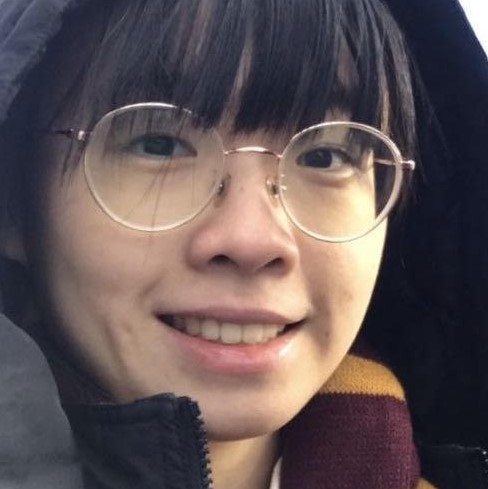
Leqi Lin, 1st Year Ph.D. Candidate
Leqi Lin is an incoming BME Ph.D. student (Ph.D. advisor Prof. Lu) starting in Fall 2020. During her two years of master's research at the New Jersey Institute of Technology (NJIT), Leqi conducted multiple projects in optoelectronics and has already submitted/published five first-author journal papers and received a graduate scholarship from NJIT. Leqi has presented her research in several conferences and won three graduate student poster awards in the annual meeting. For her Ph.D., she aims to develop novel optoelectronic materials and devices for bio- integration and healthcare applications.

David McLeod, 2nd Year Ph.D. Candidate
David McLeod is a second-year BME Ph.D. student under the advisership of Prof. Li. His research involves the design and fabrication of miniature, low power systems for microfluidic manipulation to be used at the point of care. As an undergraduate student at Clemson University, David was elected president of the Clemson Chapter of Alpha Eta Mu Beta, the National Biomedical Engineering Honors Society. As a researcher, he conducted wearable sensor research focused on the classification of individual finger movements from electromyography signals which resulted in a first author conference presentation at BMES 2018. Besides research, David also started an outreach initiative working with a local elementary school robotics team and was recognized by Clemson’s Bioengineering Department in this article: https://blogs.clemson.edu/bioengineering/2018/04/27/reaching-out-to-the-
community-coaching-4th-and-5th-graders/
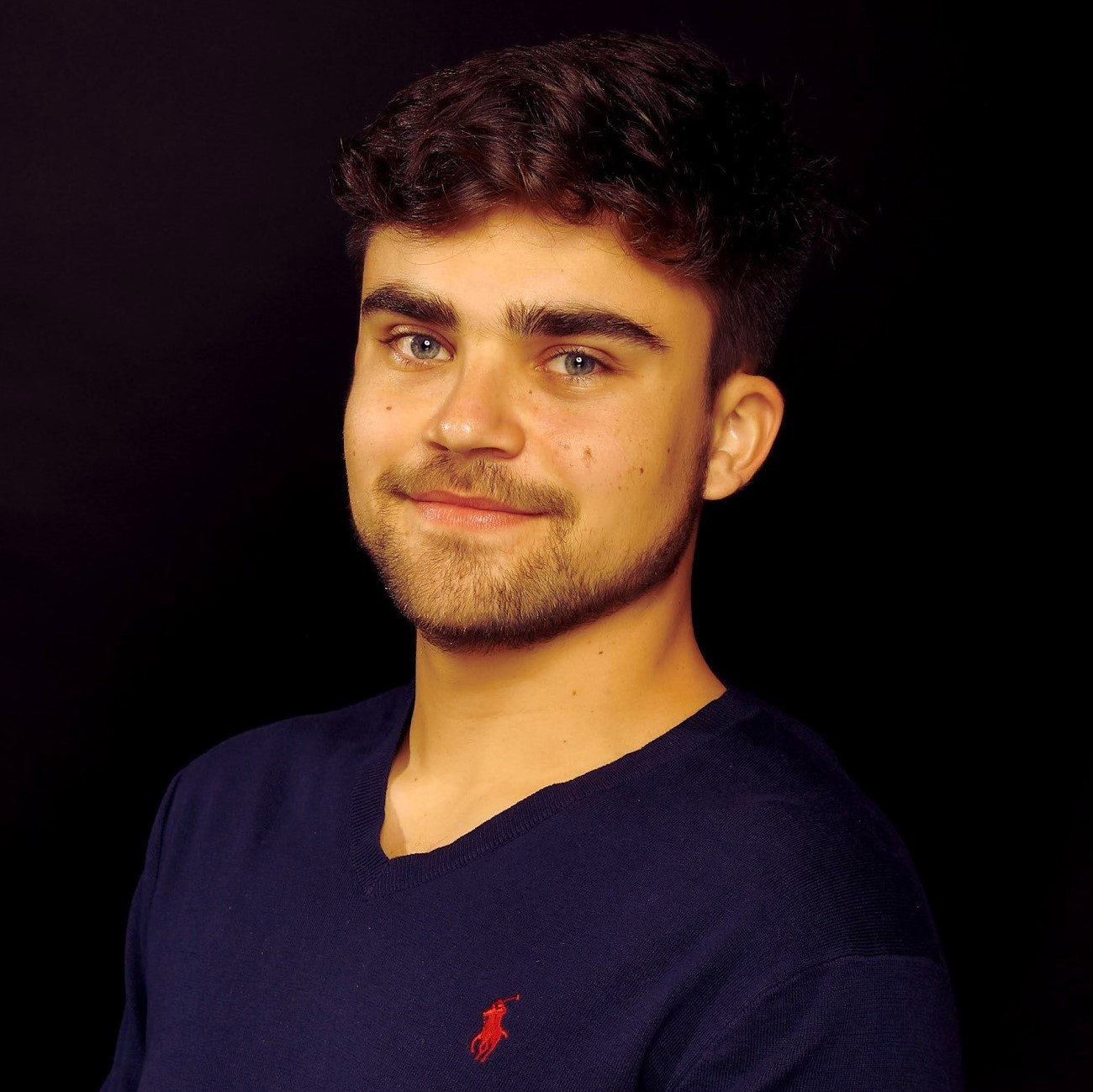
Gantt Meredith, 1st Year Ph.D. Candidate
Gantt Meredith is an incoming Biomedical Engineering Ph.D. student (Ph.D. advisor Prof. Emilia Entcheva). Dr. Entcheva’s research combines biophotonics tools with human stem-cell-derived cardiomyocyte technology and gene editing approaches to aid the advancement of personalized medicine. As an undergraduate student at the University of Florida, Gantt earned degrees in Biomedical Engineering and Linguistics while tutoring for the University Athletic Association and serving as a Teaching Assistant for MATLAB and Engineering Professionalism and Ethics. As a researcher, Gantt was fortunate enough to study diabetes tissue engineering under Dr. Cherie Stabler (University of Florida - Biomedical Engineering) and organic and inorganic electrospun nanofiber membranes under Dr. Sylvia Thomas (University of South Florida - Electrical Engineering) in collaboration with Dr. Josephine Allen (University of Florida - Materials Science and Engineering). Besides research, Gantt had a strong relationship with the University of Florida’s Engineering Leadership Institute -- representing the institute at the National Conference on Ethics in America and Lockheed Martin’s 3rd Annual Ethics in Engineering Case Competition, where Gantt and his Team were semi-finalists. Read the article here.
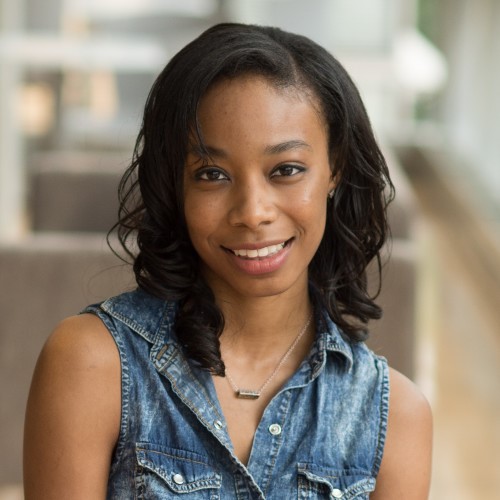
Kenise Morris, 2nd Year Ph.D. Candidate
Kenise Morris is currently a research assistant and Ph.D. student in the Laboratory for Advanced Cellular Therapeutics and Diagnostics (Prof. Papa’s Lab). Kenise earned a Master in Regulatory BME from The George Washington University in 2018 and began her Ph.D. studies in Fall 2019. She continues her efforts in the development of new diagnostic tools related to metastatic cancer as well as potential therapeutics. Kenise currently holds the Diversity Fellowship Award, a fellowship to support and recognize promising young minority researchers during their Ph.D. studies.

Maria Pozo, 2nd Year Ph.D. Candidate
Maria Pozo graduated from the University of Maryland in May 2019 with a B.S. in Bioengineering. While at UMD, Maria worked in Dr. William Bentley's lab, developing experience in metabolic and genetic engineering. As a 2nd year BME Ph.D. student in Dr. Emilia Entcheva's lab, her current work is focused on histone deacetylase inhibitors, where she leverages new skills in optogenetics towards applications in high-throughput drug screening. Maria loves traveling with her parents and cooking for friends and family.

Brian Schnoor, 2nd Year Ph.D. Candidate
Brian Schnoor is a second-year Ph.D. student in the Laboratory for Advance Cellular Diagnostic and Therapeutic (Prof. Papa’s Lab). Brian finished his BSc degree at George Mason University and has already authored a first author publication “Engineering Atrazine Loaded Poly (lactic-co-glycolic Acid) Nanoparticles to Ameliorate Environmental Challenges” (2018) and is also a co-author on a paper recently accepted by the journal Small. Additionally, Brian has co-authored several presentations for various conferences, the most recent of which is an oral presentation on the “Development of a Platelet Based Drug Delivery System” for the 2020 MRS annual meeting. Brian was also a finalist for the prestigious Goldwater Scholarship Award (2018) and has received multiple merit-based scholarships and awards.
Welcome to the New BME Ph.D. Students
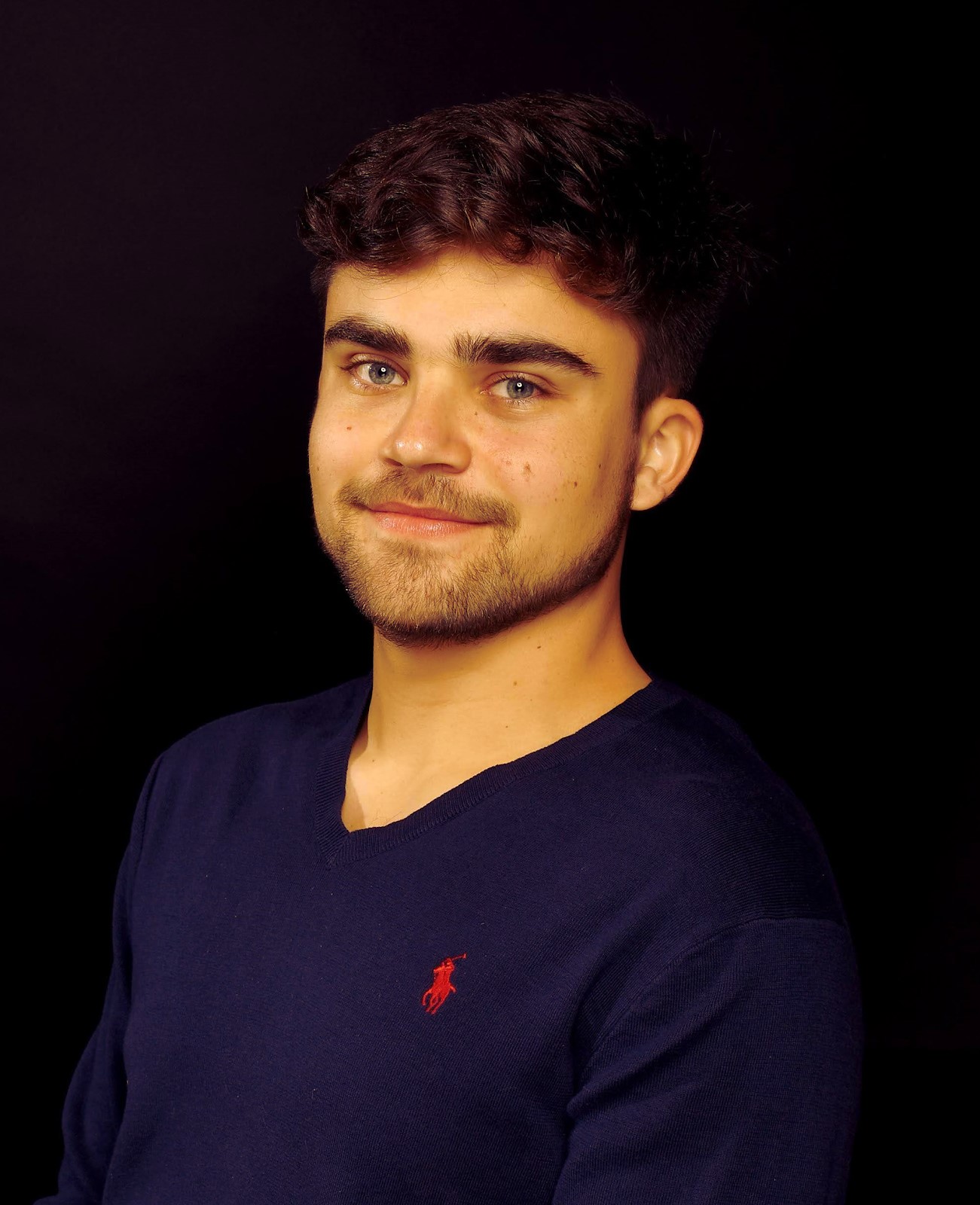
Gantt Meredith
University of Florida
Bachelor of Science in Biomedical Engineering
Bachelor of Arts in Linguistics
PI: Dr. Emilia Entcheva
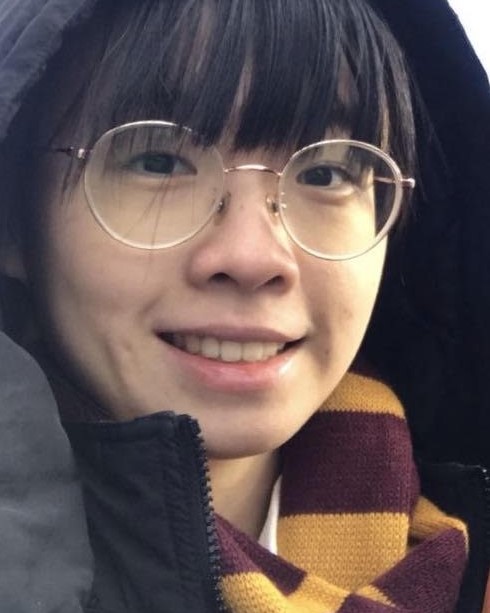
Leqi Lin
New Jersey Institute of Technology
Master of Science in Civil Engineering
PI: Dr. Luyao Lu
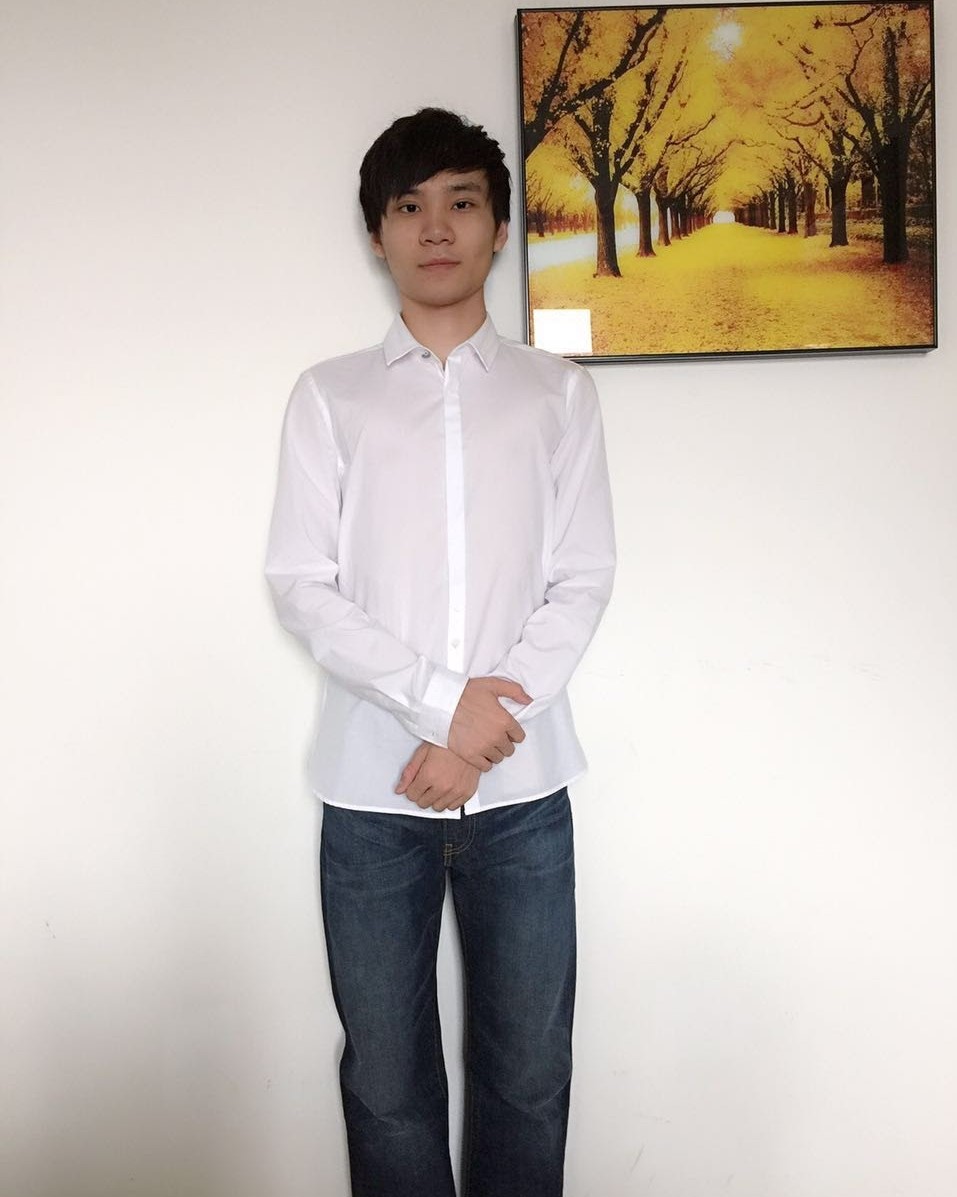
Sheng Wang
Nankai University
Master of Science
Bachelor of Science in Opto-Electronics Information Science and Engineering
George Washington University
PI: Dr. Zhenyu Li
Alumni Highlights
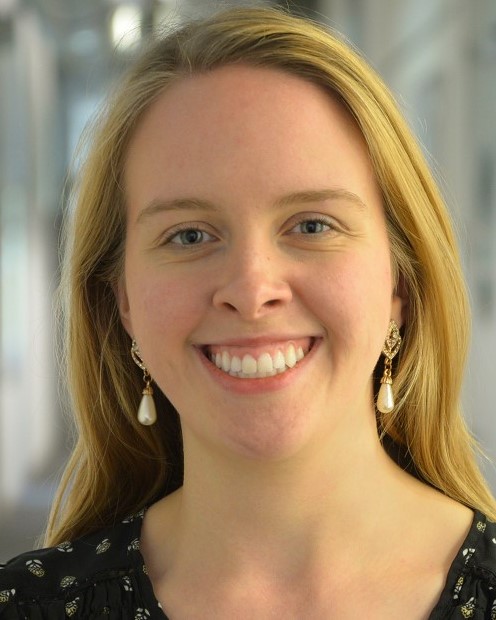
Rachel Bevill Burns, Bachelor of Science, 2015, Master of Science, 2017
Rachael Bevill Burns was awarded the Whitaker International Fellowship for Biomedical Engineering in 2017, which provided her the opportunity to travel to Stuttgart, Germany and, conduct research as a Guest Scientist at the Max Planck Institute for Intelligent Systems (MPI-IS). Rachael currently continues to work at MPI-IS as a Ph.D. student with a focus on socially assistiveRachel Bevill Burns robotics. Her doctoral work focuses on developing a Haptic Empathetic Robot Animal for Children with Autism. Rachael was a member of Theta Tau, the co-ed professional engineering fraternity, and she worked in the SEAS Undergraduate Advising Office as the Graduate Administrative Assistant for Academic Success. She is happily married to fellow SEAS alumnus Joey Burns (CS '17).
Advice to current students: When you need something, just ask! Whether you need help with a class, a letter of recommendation, or are hoping to network. People are generally very happy to help you, share their experiences, and point you to useful resources. The worst thing that could happen is the person could say no, which is not the end of the world. The best thing- the person could say yes! This is how I was able to come to Germany. I applied to several fellowships. Many said no, but one said yes- and that "yes" has been life-changing.

Zach Highley-Gergel, Bachelor of Science, 2016
At GWU, Zach worked with an outstanding team that was awarded “Best Senior Design
BME Project” for the design of our Circadian Rhythm Monitor and Jet Lag Avoidance System. After GW he spent two years qualifying for a certificate in specialized health studies from the University of Pennsylvania. Zach then spent a year working as an operations associate at New Rhein Healthcare Investors, which is an international private equity and venture capital firm focusing on repurposed life assets. Zach is now a second-year medical student at Sidney Kimmel Medical College at Thomas Jefferson University in Philadelphia, PA.
Advice to current students: I still talk to my professors from GW, they were amazing, value them. They wrote me recommendations 2+ years after graduating and helped me get into medical school. There are many people doing really cool things in that fancy new SEAS building, reach out to them, look into a research project for fun. Pick a senior design project that sounds fun. Who knows, it could turn into a career after college…

Ashley Lemnios, Bachelor of Science, 2019
During her undergraduate career, Ashley was lucky enough to have the opportunity to be a part of Dr. Anne-Laure Papa’s lab for about two years. Her research focuses on cancer and vascular diseases. Her overarching goal is to design targeted drug therapies and diagnostic methods. While in Dr. Papa’s lab, Ashley gained an abundance of laboratory skills and knowledge. Having learned as much as she did, solidified her desire to stay in the research field and she will apply for Ph.D. programs for a Fall 2021 start date.
Right after graduating, she continued her passion for research and accepted a job as a research technician at the Koch Institute for Integrative Cancer Research at MIT. Ashley works in Dr. Darrell Irvine’s lab which focuses on immunology and the development of therapeutic treatments for cancer, infectious disease, and autoimmunity. Ashley works under two Post-doctoral Associate members of the lab; Dr. Brittany Hartwell whose project focuses on “Developing lymph node-targeting amphiphile vaccines for mucosal immune protection against HIV” and Dr. Parisa Yousefpour whose project focuses on drug delivery methods and systems for cancer therapy. Both Post-Doctoral Associates are wonderful and willing to teach Ashley as much as they can. Ashley thoroughly enjoys working with them and learning the new skills that they have taught her. Since working at the Koch Institute, Ashley has been able to meet some amazing people, all of whom have the same desire to help advance the STEM field. This job has allowed Ashley to not only grow as a person but also as a working professional and science researcher.
Advice for current students: Take advantage of any and every opportunity you have to learn and grow your skills! Do not be afraid to reach out to professors about joining their labs and use every chance you get to expand your knowledge and to explore current passions further or discover new passions that you might have in the field.
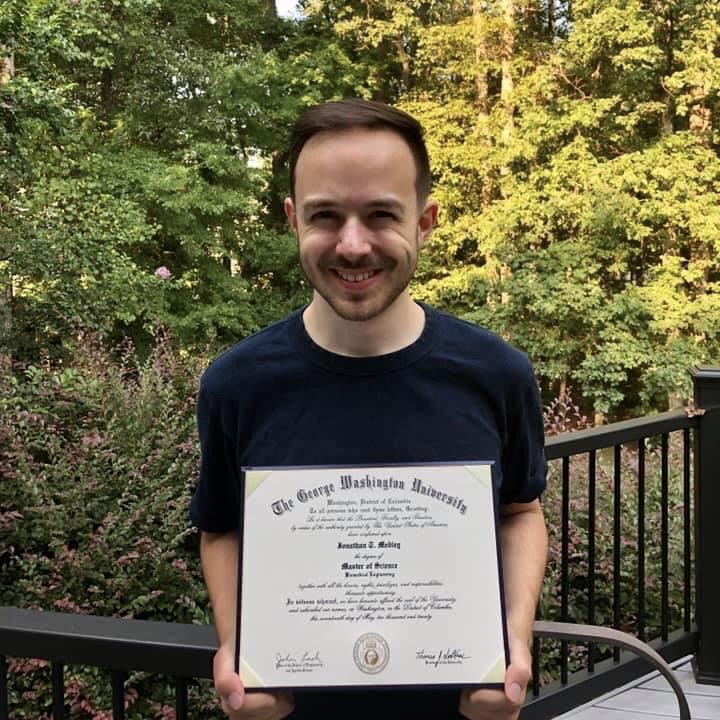
Jonathan Medley, Bachelor of Science/Master of Science, 2020
Jon started his one-year fellowship position at the US Food and Drug Administration (FDA) through the Oak Ridge Institute for Science and Education (ORISE). His research is focused on assessing the adhesion of topical and transdermal systems (TDS) for drug delivery in clinical trials. Through biomechanical modeling, image processing, and machine learning, Jon aims to improve and standardize the methods that clinical research teams and FDA reviewers use to determine how well TDS systems adhere to study participants. He is conducting this research remotely from his home in Silver Spring, MD.
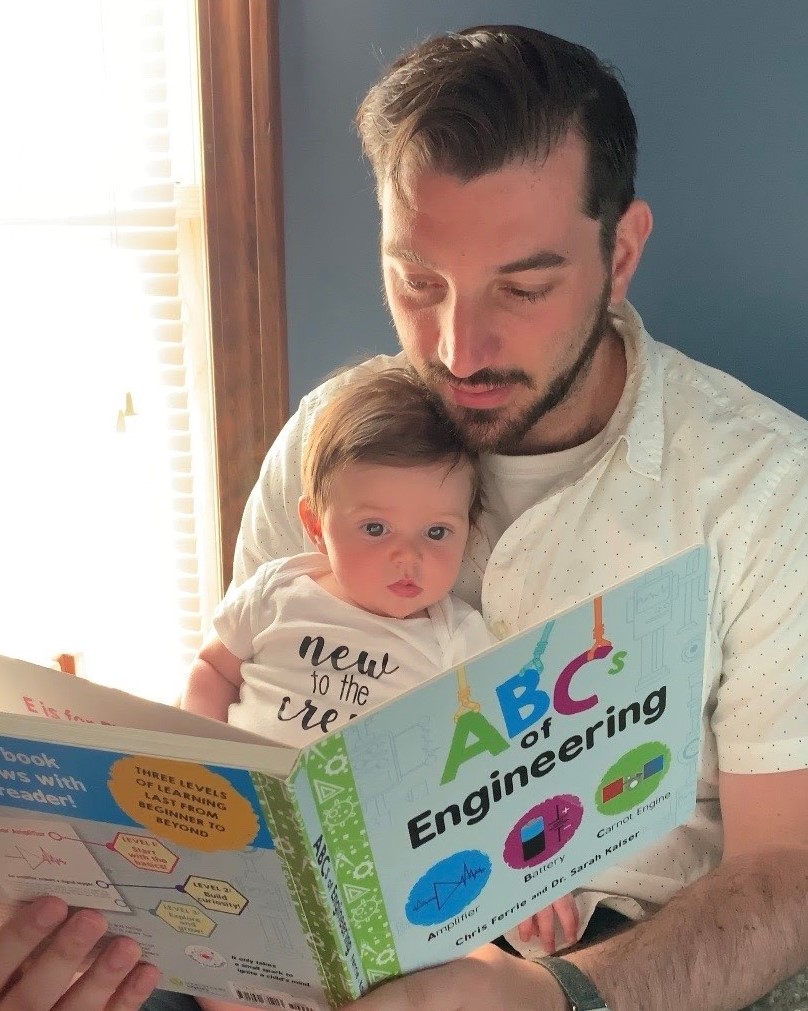
Matthew Wilkins, Bachelor of Science, 2012, Master of Science, 2014
While at GW, Matt Wilkins founded Pedal Forward- a bamboo bicycle startup that distributes bicycles to developing communities around the world. For his work with Pedal Forward, Matt was recognized by The Clinton Foundation and was named a Global Emerging Entrepreneur by the Obama White House. After graduating, Matt started working as employee #8 at a small health tech startup where he was the first Product Manager and helped build the company to 40 employees. Matt then found his way back to bikes as the Product Manager for Electric Bikes at both Motivate and then Lyft, where he was responsible for launching the first docked electric bike-share systems in the country. Currently, Matt is the Product Manager for Physical Products at CLEAR. His latest product is a touchless fever detection device for COVID screening (finally using those BME degrees!) and is being used in the NHL bubbles in Edmonton and Toronto! Matt lives in Brooklyn with his wife and 5-month old daughter Josephine.
Advice to current students: Take courses and participate in extracurriculars that you think are interesting and fun, not because you think they could advance your career. Everyone's path is different. Also- have lots of fun, eat lots of jumbo slice, and get out of the Foggy Bottom bubble. DC has so much to offer!
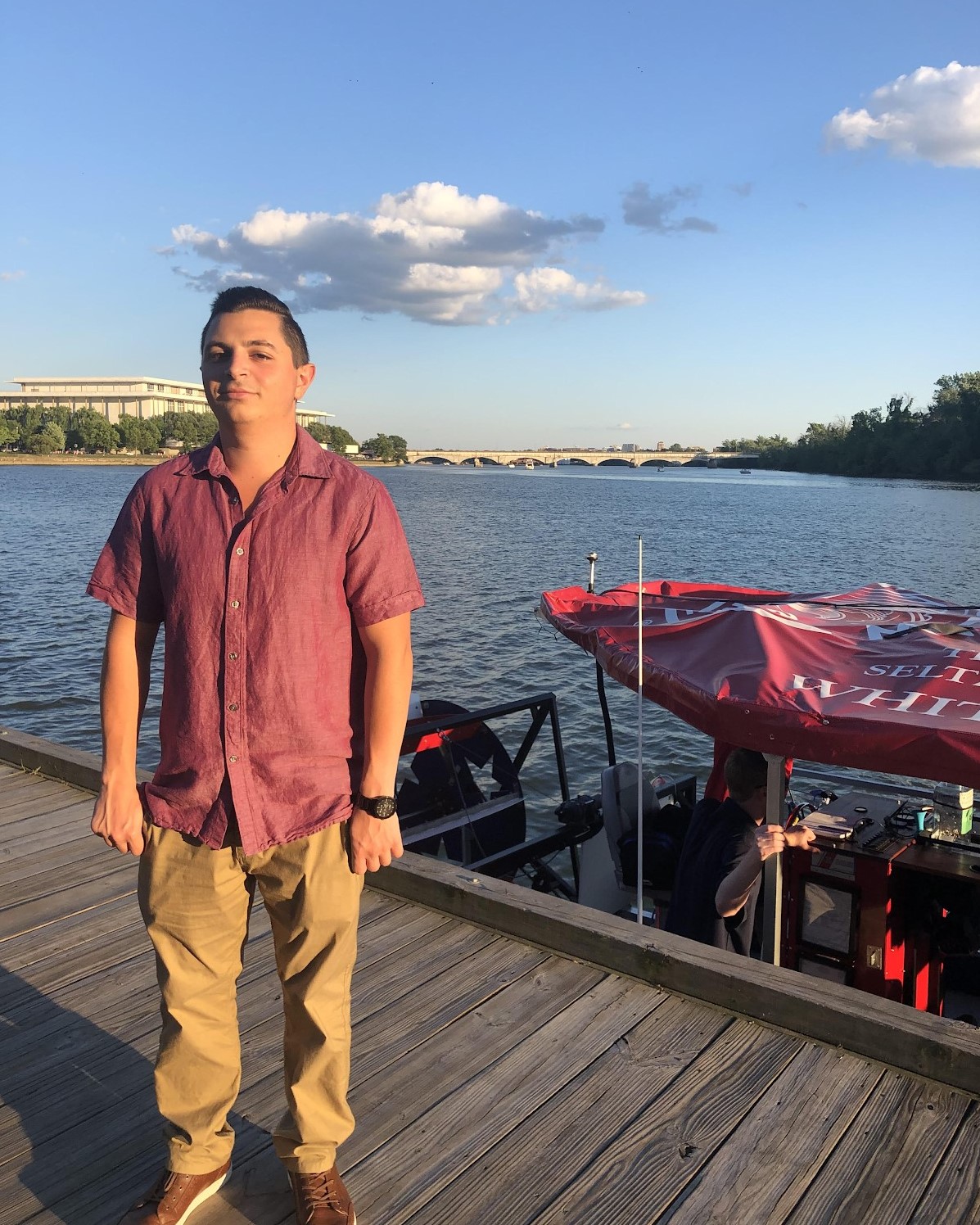
Christopher Xyloportas, Bachelor of Science, 2014
Chris is currently in his final year of law school, to which he received a full scholarship. He is pursuing a concentration in intellectual property. Chris has completed 50 hours of pro bono legal work in addition to working alongside professional attorneys in New York City.
Advice to current students: Maximize downtime. If you know that there are a lot of assignments coming down the line, it’s never a bad idea to get an early start and stay on top of everything instead of doing all of it at once.
What's Next for the Class of 2020?
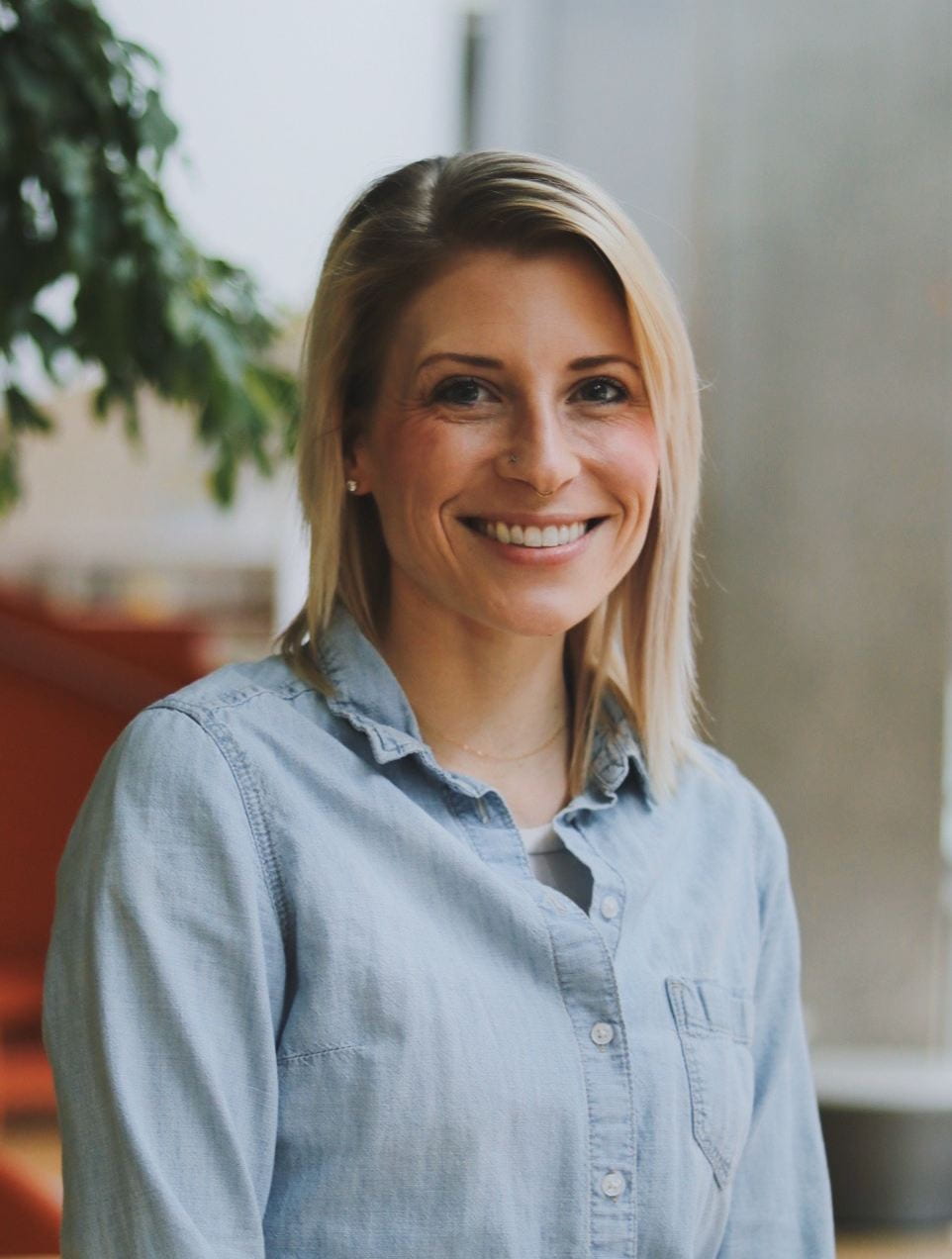
Jaclyn Brennan, Ph.D. 2020
Dr. Jaclyn Brennan received her Ph.D. and started as a Postdoctoral Researcher at GW. Dr. Brennan completed her doctoral research and successfully defended a Ph.D. in May 2020. Her outstanding work, already published in 7 peer-reviewed manuscripts, will have a lasting impact on the field of cardiology for several reasons, most notably due to her discovery of the second sino-atrial node in the human and rat hearts. Two more papers presenting these results are in preparation. Jaclyn leads her own research group of enthusiastic undergraduate researchers investigating autonomic control of the mammalian heart, which is funded by the National Institutes of Health, American Heart Association, and Leducq Foundation. Dr. Efimov and his lab are happy that Jaclyn accepted a postdoctoral position in their lab at GW, despite numerous offers from other universities in the USA and Europe, and will continue her research as a postdoctoral fellow of the American Heart Association.
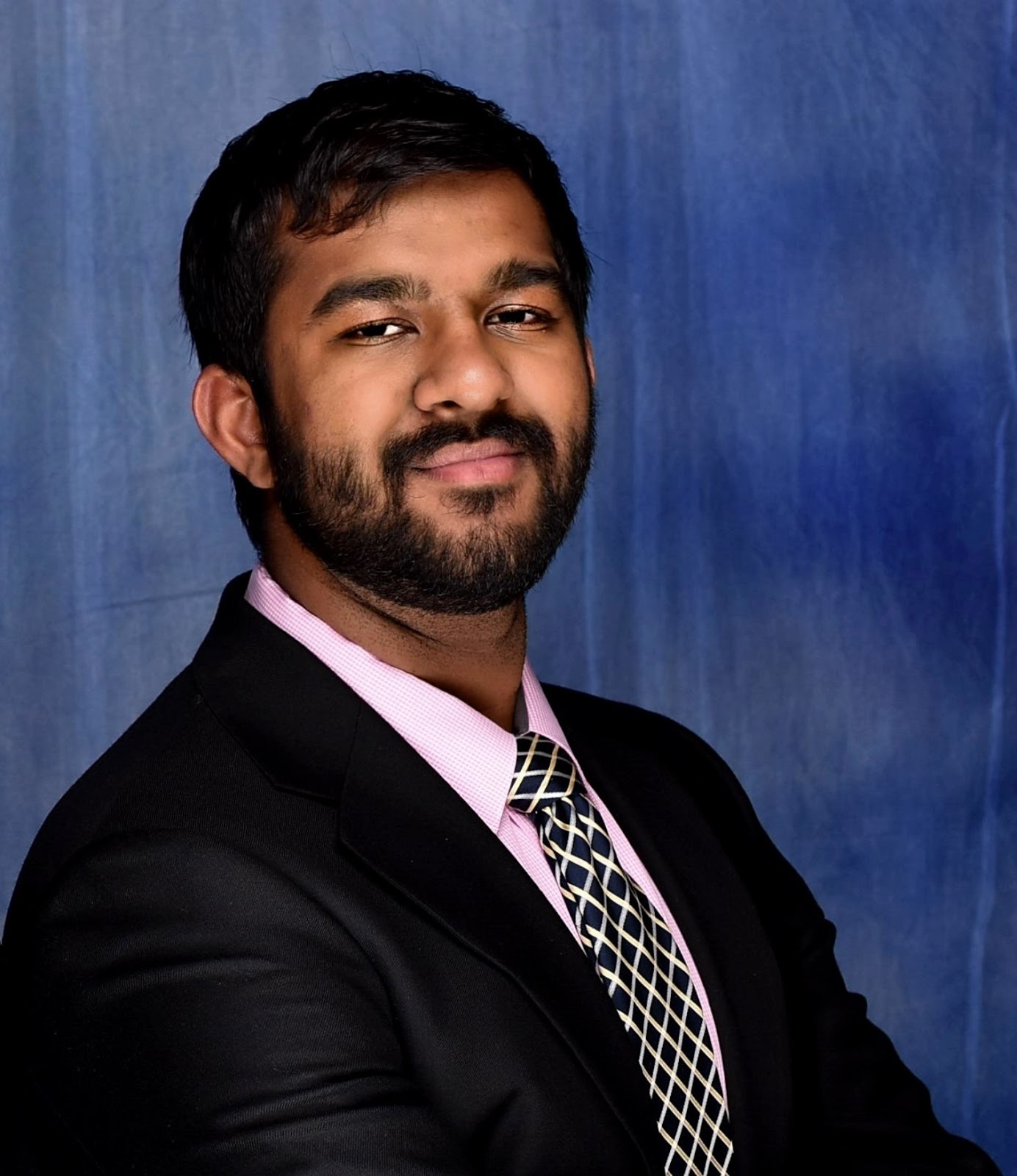
Shubham Gupta, Bachelor of Science, 2020
Shubham is continuing his studies at George Washington University. He enrolled in the GW Medical School in the Fall of 2020. Throughout the semester, he engaged in a multifaceted learning experience where we learned about a certain body system, applied his knowledge through simulated patient interactions and case studies, and explored public health in the US all at the same time. The first half of the semester was devoted to building the biological foundations and learning how to interview and perform physical exams on patients. Doing this in the virtual environment was quite an interesting experience for him, especially verbalizing the physical maneuvers on Webex. Now, he is learning about infectious diseases, inflammatory reactions, and hematologic conditions. It is surprising for him to see that a simple fever can be a symptom in so many conditions of different types! In the realm of public health, he learned a lot about the benefits and disadvantages of the US health system. As a ribbon to wrap up the semester, he will learn about HIV prevalence in the US and work with health experts to come up with policies to expand testing and treatment. His experience has been a virtual roller coaster ride so far, and he is looking forward to seeing what other loops and turns medical school has to offer in the next 3 years.
Reham Kaifi, Ph.D. 2020
Dr. Reham Kaifi will join King Saud bin Abdul-Aziz University for Health Science in Saudi Arabia, Jeddah as a lecturer.
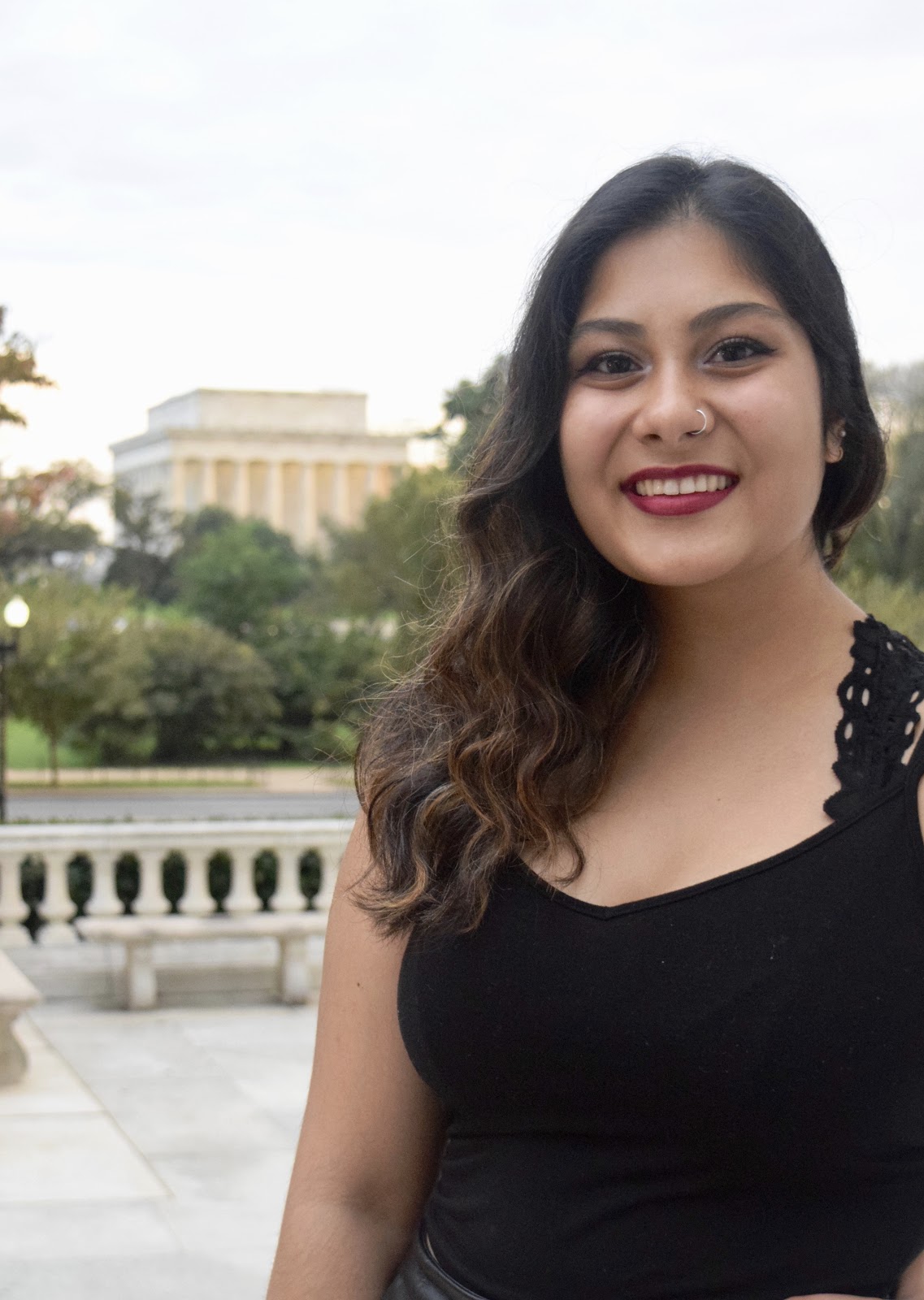
Khyati Patel, Bachelor of Science 2020
Khyati accepted an offer from Centurion, a company providing public medical and behavioral health programs to correctional facilities across the country. Her position focuses on public health and business development, two fields she has grown interested in through participation in her extracurricular activities. In the future, she hopes to move into a position more BME-related, however, she is excited and grateful for this opportunity in the midst of a pandemic. For now, she is excited to be staying in DC!














